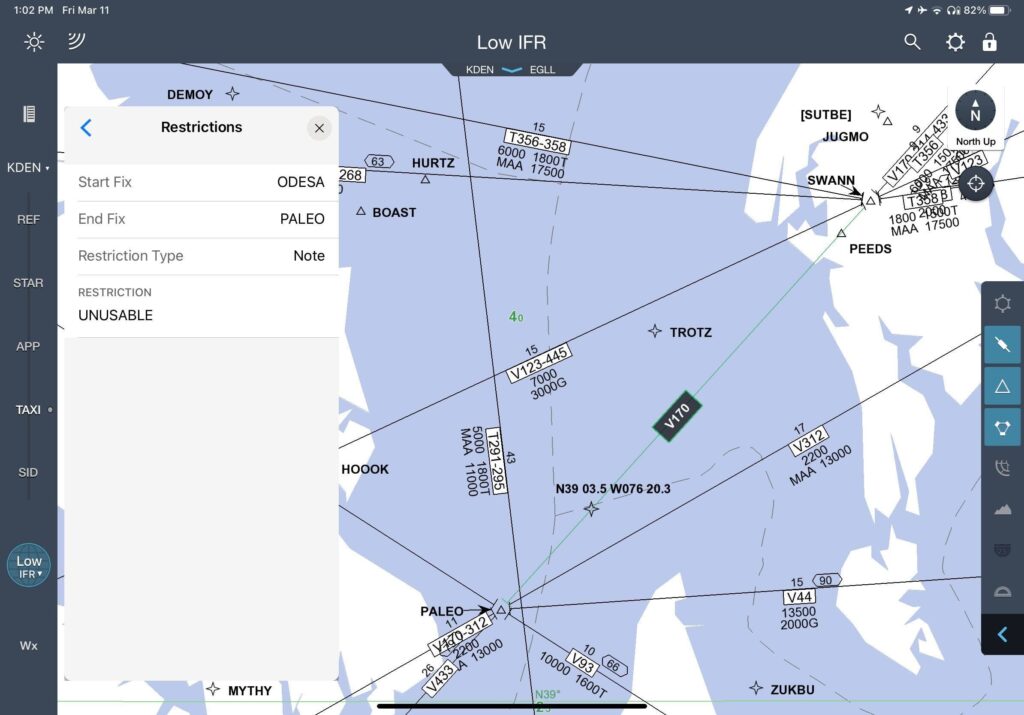
A recent cyber incident affected certain products and services of Jeppesen, a subsidiary of Boeing. (Photo: Jeppesen/ForeFlight)
On Nov. 2, Jeppesen, a Boeing subsidiary, was affected by an aviation cyber incident. For thousands of pilots across the world, there was some disruption to flight planning as a result of the incident.
In the past year, there has been a 560% annual increase in aviation cyber attacks, according to the European Organization for the Safety of Air Navigation. Many of these incidents have reminded pilots why they shouldn’t rely too much on one tool during flight, and the recent cyberattack on Jeppesen’s suite of flight optimization tools was no different.
On Nov. 2, Jeppesen reported the incident on their website, stating it could affect the accuracy of some of their products and services.
According to Bloomberg’s reporting of the event, Jeppesen said: “Receipt and processing of so-called notice to air missions, which inform pilots and airlines about potential hazards during flights, have also been affected.”
Boeing has given few details on the incident. A Boeing representative made a statement on Nov. 9, saying, “Our subsidiary, Jeppesen, experienced a cyber incident affecting certain flight planning products and services. There has been some flight planning disruption, but at this time we have no reason to believe that this incident poses a threat to aircraft or flight safety.” Boeing has declined to comment further on what caused the cyberattack or the full scope.

Jeppesen’s tailored charts for cockpit avionics (Photo: Jeppesen)
Jeppesen has successfully completed a full restoration after the incident, a welcome announcement to pilots utilizing their flight optimization tools. Jeppesen’s products and services are now all working as usual and providing accurate data.
Flying with an expired GPS or inaccurate navigation data can be dangerous. FAA Advisory Circular 90-100A, the federal advisory board for RNAV operations and U.S. Airport terminals, states that current onboard navigation must be up to date for all aircraft.
Even during the attack, Jeppesen stated that the current flight information, while not updating in real-time, was still in compliance with current regulations and would be accurate until Dec. 1.
“The most recent Jeppesen chart downloads available in Jeppesen Mobile FliteDeck and ForeFlight Mobile are currently effective and in compliance with applicable regulatory requirements. Any ‘Expired’ messages shown for Jeppesen Terminal Charts prior to December 1st do not indicate that the charts are expired from a regulatory perspective,” Jeppesen wrote.
It’s been determined that Jeppesen was not the target of the attack. Boeing and Jeppesen are still determining the scope of the incident, with the potential to share more details as they become available.